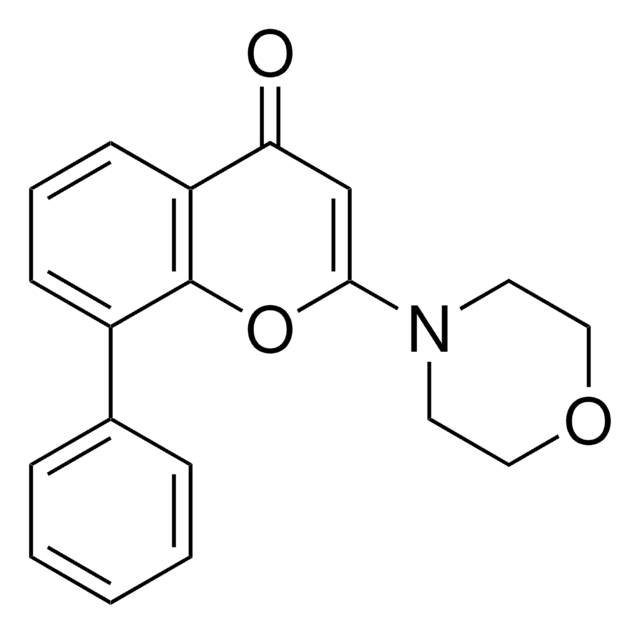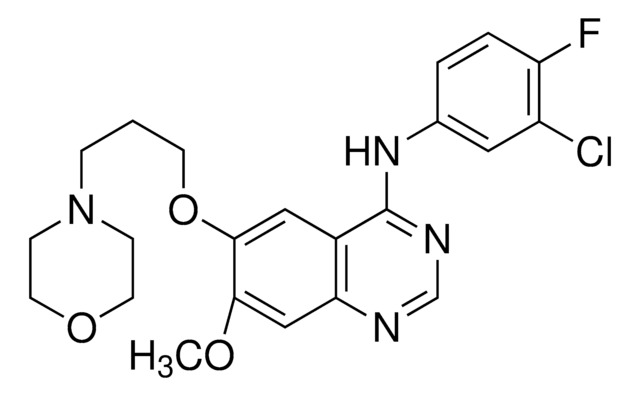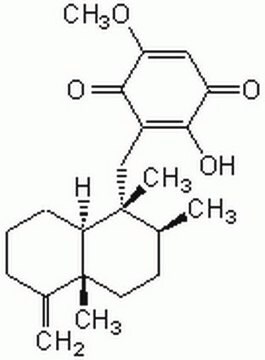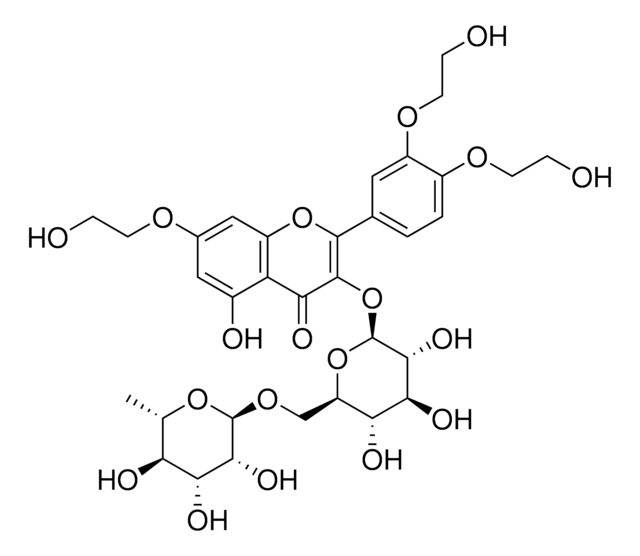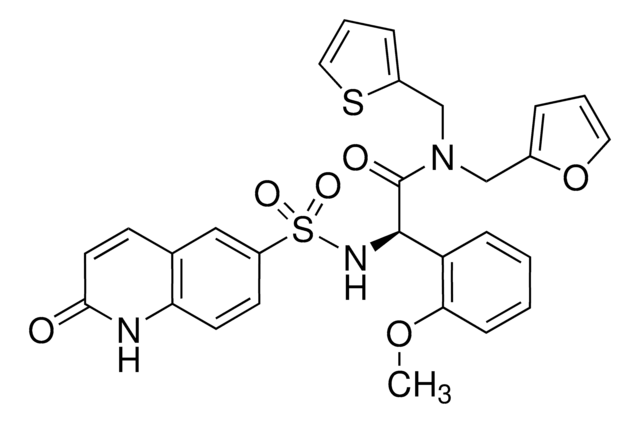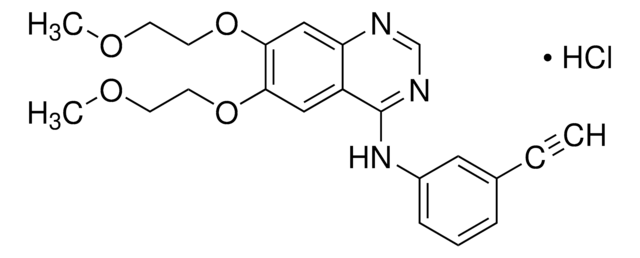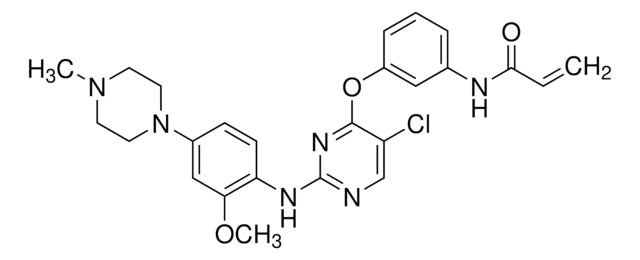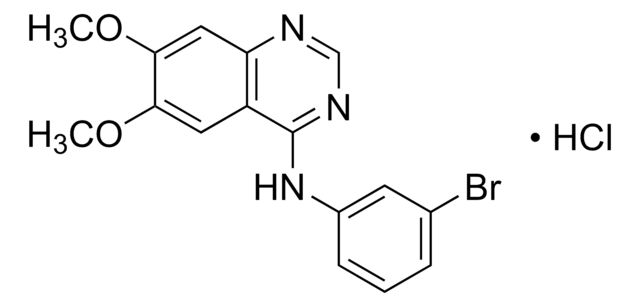T4182
Tyrphostin AG 1478
≥98%
Sinónimos:
N-(3-Chlorophenyl)-6,7-dimethoxy-4-quinazolinamine
About This Item
Productos recomendados
Quality Level
assay
≥98%
form
solid
solubility
0.1 M HCl: soluble <0.4 mg/mL
DMSO:methanol (1:1): soluble 10 mg/mL, clear, colorless
ethanol: soluble 10 mg/mL
methylene chloride: soluble 10 mg/mL
0.1 M NaOH: insoluble
2-hydroxypropyl-β-cyclodextrin: insoluble
H2O: insoluble
storage temp.
2-8°C
SMILES string
COc1cc2ncnc(Nc3cccc(Cl)c3)c2cc1OC
InChI
1S/C16H14ClN3O2/c1-21-14-7-12-13(8-15(14)22-2)18-9-19-16(12)20-11-5-3-4-10(17)6-11/h3-9H,1-2H3,(H,18,19,20)
InChI key
GFNNBHLJANVSQV-UHFFFAOYSA-N
Gene Information
human ... EGFR(1956)
mouse ... Egfr(13649)
Application
Biochem/physiol Actions
Features and Benefits
Preparation Note
Storage Class
11 - Combustible Solids
wgk_germany
WGK 3
flash_point_f
Not applicable
flash_point_c
Not applicable
ppe
Eyeshields, Gloves, type N95 (US)
Certificados de análisis (COA)
Busque Certificados de análisis (COA) introduciendo el número de lote del producto. Los números de lote se encuentran en la etiqueta del producto después de las palabras «Lot» o «Batch»
¿Ya tiene este producto?
Encuentre la documentación para los productos que ha comprado recientemente en la Biblioteca de documentos.
Los clientes también vieron
Contenido relacionado
Discover Bioactive Small Molecules for Kinase Phosphatase Biology
Nuestro equipo de científicos tiene experiencia en todas las áreas de investigación: Ciencias de la vida, Ciencia de los materiales, Síntesis química, Cromatografía, Analítica y muchas otras.
Póngase en contacto con el Servicio técnico